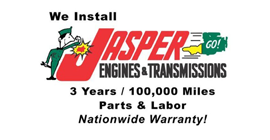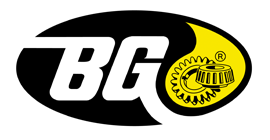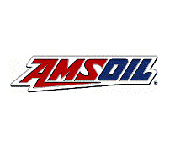AUTONET TV
Archive for April 2022Positive and Negative (Battery Care)Posted April 24, 2022 8:54 AMYou notice when your smartphone's battery starts to go weak on you. It runs out of juice faster than it did when it was new. Bet you pay attention to that pretty closely. Unfortunately, many of us don't pay the same attention to the battery in our vehicles. If your battery got you through the cold-weather months, you might be thinking you're all set until next winter. But you might be surprised to learn this: Hot weather is harder on a battery than cold weather. (Note: we're talking about a conventional vehicle here, not an all-electric, plug-in one.) The way your vehicle's battery holds a charge is that it has chemicals inside it, and they react with each other to produce electricity. A vehicle battery discharges electricity and then needs to be recharged. Unlike your smartphone that you plug in each night to charge, the way a vehicle's battery gets recharged is by using the mechanical energy of the engine. It's a pretty cool system that's been around for a while. An alternator changes the mechanical energy into electricity that then charges the battery. And your vehicle is designed to charge it just the right amount with a voltage regulator. If your battery constantly gets too much voltage, it could stop holding a charge. Another way a vehicle battery loses its ability to hold a charge is when it gets hot. In warmer weather, some fluids in your battery evaporate which can damage some of its internal components. Then, you've got a dead battery. Back to your smartphone for a second, it probably has a little indicator or maybe an app that shows you how healthy it is or how much charge it's holding. Well, your service repair facility has equipment that can test your vehicle's battery for the same things. If that test shows you need a new battery, then it's probably time to replace it. A technician can also check to see your battery is being charged at the correct rate. If you have a battery that is not sealed, a technician can check to see it needs more water added to it. The technician will also make sure dirt or other contaminants aren't acting as electrical conductors and discharging the battery. Plus, your battery's terminals may need cleaning. Most people just forget about their vehicle's battery until there's a big problem with it. Here's one rule of thumb: expect a battery's life to be about 5 years. Just like you wouldn't want your smartphone to leave you without any way to make phone calls or send texts, you wouldn't want your vehicle to leave you stranded with no way to start it, would you? When it comes time to make that new battery choice, your service advisor can offer you some good options, taking into account the climate you drive in, what you use your vehicle for and what your budget is. Hey, your smartphone's battery is all charged up. How about calling your service advisor for an appointment right now?
The Truth about Tire Pressure (Tire Inflation)Posted April 17, 2022 7:01 AMMost light vehicles (under 10,000 pounds/4,500 kg) in North America sold from 2008 model year on have a feature that many people are confused about. It's the tire pressure monitoring system (TPMS). You may have some experience with it yourself if you own a newer vehicle. Vehicles with TPMS have sensors in each tire that are supposed to warn the driver when tire pressure gets dangerously low. That's important because tires that are significantly under-inflated can cause very serious accidents. Unfortunately, many drivers think the TPMS does all the work keeping track of tire pressure. To them, as long as the warning light or gauge isn’t giving a warning, the tires must have the proper amount of air pressure in them. That's not the case. Tire pressure monitoring systems aren't all created equal. Some give you a digital readout of the pressures in each individual tire. But many simply have a warning light that looks like the cross section of a tire with an exclamation point in the middle. If you don't know what it is, it's because it's not instantly recognizable as a tire. In fact, one company that makes TPMS, Schrader Performance Sensors, surveyed drivers. Their study showed that more than 40 percent of drivers didn't know that that warning light was. One out of 5 of the drivers who did know what the light was only looked at their tires after the light came on to see if they could see any that needed air; they never checked them with a tire gauge or had someone else do it. Ten percent of them didn't do anything when the light came on. In most vehicles with TPMS, the warning comes on only when the tires are more than 25% underinflated. The American Automobile Association says that's under the pressure you need for safe vehicle operation. The bottom line is once a month you should make sure your tires are inflated to the manufacturer's recommendations. That means each tire should be measured with an accurate, external tire gauge. To be confident you are getting a correct reading, take your vehicle to a reputable service facility where their equipment is calibrated and they know what they're doing. Severely underinflated tires can contribute to an accident that kills or severely injures people. The idea behind TPMS is well intended, but the system was never meant to replace regular inflation measurements and maintenance. Periodically have your tires checked for proper inflation. Hill's Auto Repair, Inc. Give it the Boot (Ball Joint Boot Replacement)Posted April 10, 2022 10:38 AMYour vehicle may be wearing boots right now and you might not even know it. They're called ball joint boots. They're actually protective, flexible things that protect parts of your suspension (called ball joints) from all the hazards the road can fling at them. If one of those ball joint boots fails and you don't get it replaced, the ball joints themselves could wind up failing, a repair that can be even more expensive. Ball joint boots not only keep things like rocks, salt, water and dirt out of your ball joints, they also help the ball joints keep their lubrication inside and working properly. To do that, the boots have to be made of a flexible material, sometimes rubber, sometimes a synthetic. They do take a beating, exposed to temperature extremes and debris, and eventually they can tear or crack just because of their age. Unless someone is keeping an eye on your ball joint boots, you may never know there's a problem. That's why when you regularly take your vehicle in to a repair facility for other things like oil changes and routine maintenance, a technician will inspect the ball joint boots to make sure they're still in top shape. If they're not, your service advisor will let you know. Take care of that soon and you may avoid having to replace the ball joints themselves or other suspension parts which may be much more expensive. Often it's best to replace boots on both sides of the vehicle since they frequently wear at about the same rate. If you want to make a fashion statement, some ball joint boots come in various colors other than run-of-the-mill black. And some aftermarket boots are made of a more durable material than the original equipment that came on your vehicle. Some drivers get a real "kick" out of flashy ball joint boots! Hill's Auto Repair, Inc. The Vivacious Vernal Vehicle (Preparing Vehicle for Spring)Posted April 3, 2022 9:35 AMMost of us look forward to spring because the days are longer, the weather's warmer and we can finally get our vehicles into warm weather mode. Here are a few things that will breathe fresh energy into anyone's car, SUV, truck or van. First thing is a good cleaning, especially underneath. If you live where salt and brine are used on the roads, it's important to get that off. One thing to note… if you hose off your undercarriage, be careful not to get your spark plugs/wires wet. You could notice your vehicle running rough plus the Check Engine light may come on. It usually dries out quickly, but if the engine light stays on for more than a couple of days, have your service facility check it out. Next, replace your windshield wipers. They've taken a beating through the winter. New ones will have fresh rubber and you'll see clearly (and safely) out your windshield again. Have your brakes inspected. That salt doesn't do your brake's metal components any good. Have a technician make sure your pads and rotors are clean and properly lubricated so they can stop you when you ask them to. Speaking of wheels, it's a good time to have your tires checked, too. Road debris and potholes can take a toll on tread and sidewalls. It may also be a good idea to have a technician check your alignment since you likely have hit something pretty hard on a patch of rough road at some time during the winter. Make sure your tire pressure is appropriate for the rising temperatures. As the outside air warms up, your tire pressure climbs without you adding any air. Make sure it's what the manufacturer recommends. Finally, treat your vehicle's interior to a thorough refresh. Those floor mats and carpets may be white with salt; clean 'em up. Get rid of wrappers, drink lids, empty water bottles and anything else that's fallen down. And if you need to, have your upholstery cleaned so it looks and smells new. A clean exterior is nice, but since you spend your time inside your vehicle, it'll feel even better when your cabin is sparkling fresh.
| ||
SearchArchiveSeptember 2011 (18)October 2011 (3) November 2011 (5) December 2011 (4) January 2012 (5) February 2012 (3) March 2012 (5) April 2012 (4) May 2012 (5) June 2012 (4) July 2012 (4) August 2012 (5) September 2012 (4) October 2012 (5) November 2012 (4) December 2012 (4) January 2013 (4) February 2013 (4) March 2013 (4) April 2013 (4) May 2013 (5) June 2013 (4) July 2013 (4) August 2013 (4) September 2013 (5) October 2013 (5) November 2013 (4) December 2013 (4) January 2014 (5) February 2014 (4) March 2014 (4) April 2014 (4) May 2014 (5) June 2014 (4) July 2014 (4) August 2014 (5) September 2014 (4) October 2014 (5) November 2014 (4) December 2014 (5) January 2015 (4) February 2015 (4) March 2015 (4) April 2015 (5) May 2015 (2) June 2015 (6) July 2015 (4) August 2015 (5) September 2015 (4) October 2015 (5) November 2015 (4) December 2015 (3) February 2016 (1) March 2016 (7) April 2016 (4) May 2016 (5) June 2016 (4) July 2016 (5) August 2016 (4) September 2016 (4) October 2016 (4) November 2016 (5) December 2016 (4) January 2017 (5) February 2017 (3) March 2017 (5) April 2017 (4) May 2017 (5) June 2017 (4) July 2017 (5) August 2017 (3) September 2017 (3) October 2017 (5) November 2017 (4) December 2017 (3) January 2018 (5) February 2018 (4) March 2018 (4) April 2018 (4) May 2018 (5) June 2018 (4) July 2018 (5) August 2018 (4) September 2018 (4) October 2018 (4) November 2018 (4) December 2018 (5) January 2019 (5) February 2019 (1) March 2019 (4) May 2019 (2) June 2019 (5) July 2019 (2) August 2019 (2) September 2019 (3) October 2019 (5) November 2019 (4) December 2019 (5) January 2020 (5) February 2020 (4) March 2020 (5) April 2020 (1) May 2020 (2) June 2020 (1) July 2020 (1) August 2020 (5) September 2020 (4) October 2020 (4) November 2020 (5) December 2020 (4) January 2021 (6) February 2021 (4) March 2021 (4) April 2021 (4) May 2021 (5) June 2021 (4) July 2021 (4) August 2021 (5) September 2021 (4) October 2021 (5) November 2021 (4) December 2021 (4) January 2022 (6) February 2022 (4) March 2022 (4) April 2022 (4) May 2022 (5) June 2022 (4) July 2022 (5) August 2022 (2) September 2022 (4) October 2022 (5) November 2022 (4) December 2022 (4) January 2023 (5) February 2023 (4) March 2023 (4) April 2023 (5) May 2023 (4) June 2023 (4) July 2023 (5) August 2023 (4) September 2023 (2) October 2023 (1) January 2024 (1) February 2024 (4) | CategoriesAir Conditioning (17)Alignment (16)Alternator (6)Auto Safety (6)Automotive News (8)Battery (20)Brake Service (4)Brakes (22)Cabin Air Filter (8)Check Engine Light (6)Cooling System (19)Customer Detective Work (1)Dashboard (3)Diagnostics (5)Diesel Maintenance (2)Differential Service (4)Drive Train (9)Emergency Items (1)Engine Air Filter (2)Exhaust (12)Fluids (17)Fuel Economy (10)Fuel Pump (1)Fuel Saving Tip: Slow Down (2)Fuel System (48)Headlamps (6)Inspection (10)Keys to a long lasting vehicle (4)Maintenance (59)Monitoring System (3)Oil Change (7)Older Vehicles (4)Parts (8)PCV Valve (2)Safe Driving (1)Safety (6)Serpentine Belt (6)Service Intervals (10)Service Standards (13)Shocks & Struts (11)Shocks and Struts (1)Spark Plugs (2)Steering (16)Suspension (3)Timing Belt (6)Tire Rotation and Balancing (4)Tires (10)Tires and Wheels (42)TPMS (3)Transfer Case Service (1)Transmission (11)Trip Inspection (4)Warranty (2)Water Pump (1)What Customers Should Know (81)Wheel Bearings (1)Windshield Wipers (9)Winter Prep (7)Winter Tires (1) | |










